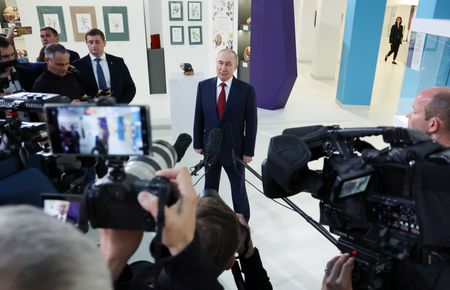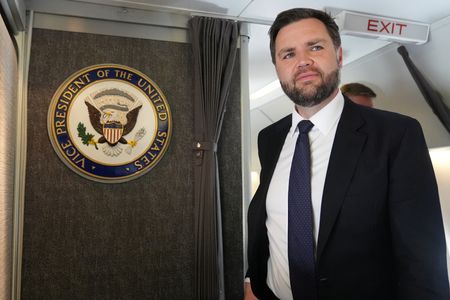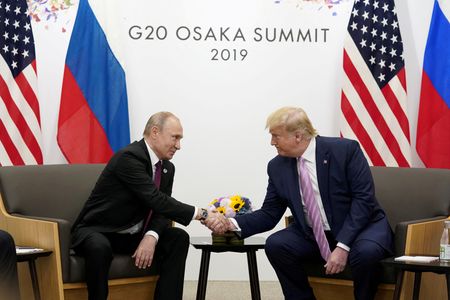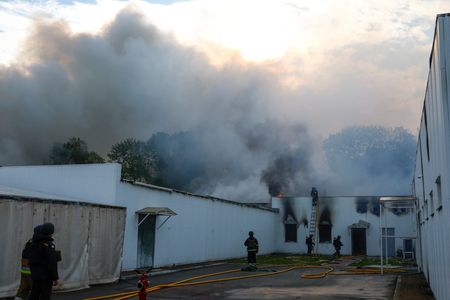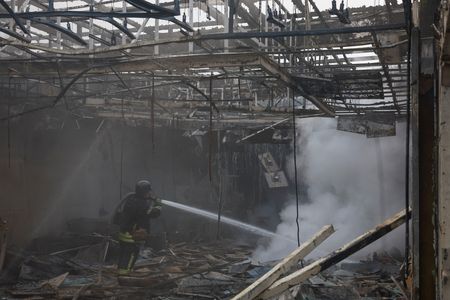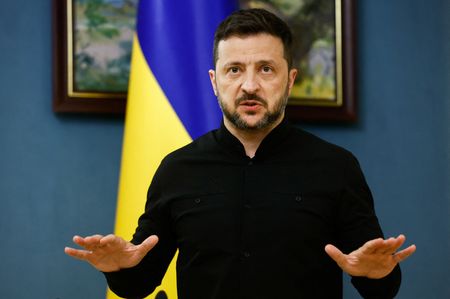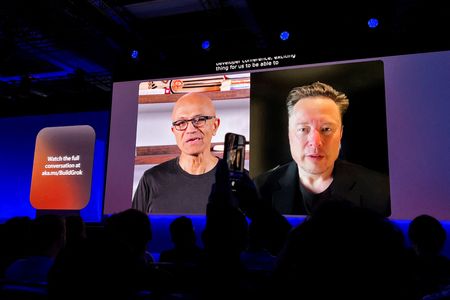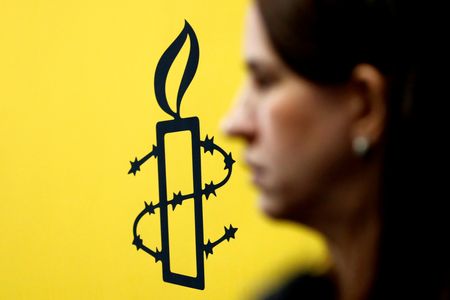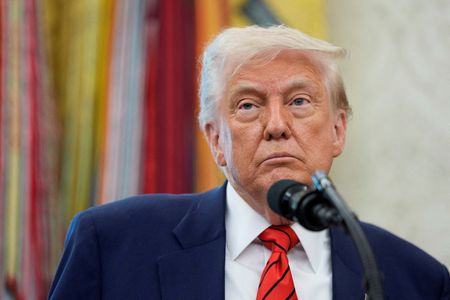By Guy Faulconbridge, Steve Holland and Max Hunder
MOSCOW/WASHINGTON/KYIV (Reuters) -U.S. President Donald Trump said on Monday that Russia and Ukraine “will immediately start negotiations” toward a ceasefire and an end to their three-year-old war, speaking after he held a call with Russia’s President Vladimir Putin.
“Negotiations between Russia and Ukraine will begin immediately,” Trump said in a Truth Social post following his call with Putin, which lasted two hours.
After the call, Putin said efforts to end the war were “generally on the right track” and that Moscow was ready to work with Ukraine on a potential peace deal.
“We have agreed with the president of the United States that Russia will propose and is ready to work with the Ukrainian side on a memorandum on a possible future peace accord,” Putin told reporters near the Black Sea resort of Sochi.
There was no immediate comment from Ukrainian President Volodymyr Zelenskiy on the statement that talks would begin immediately. A source familiar with the matter earlier said Zelenskiy spoke “for a few minutes” with Trump before the U.S. leader’s call with Putin.
Kyiv has said it is ready for a ceasefire now while Moscow has said conditions must be met first.
In his social media post, Trump said the Vatican, “as represented by the Pope, has stated that it would be very interested in hosting the negotiations. Let the process begin!”
Putin and Trump spoke after direct talks last week in Turkey between Moscow and Kyiv, the first since 2022 in the early months of Russia’s invasion of Ukraine. Talks last week failed to agree on a truce.
U.S. Vice President JD Vance earlier repeated a warning that Washington could walk away from the peace process.
Putin said the memorandum would define “a number of positions, such as, for example, the principles of settlement, the timing of a possible peace agreement.”
He said that if appropriate agreements were reached, there could be a ceasefire, adding that direct talks between Russia and Ukraine gave “reason to believe that we are generally on the right track.”
“The main thing for us is to eliminate the root causes of this crisis,” Putin said. “We just need to determine the most effective ways to move towards peace.
He thanked Trump for supporting the resumption of direct talks between Moscow and Kyiv and said Trump noted Russia’s support for peace, though the key question was how to move towards peace.
Trump, who has promised to bring a swift end to Europe’s deadliest war since World War Two, has repeatedly called for a ceasefire after three years when Washington joined other Western countries in arming Ukraine.
European leaders have said they want the United States to join them in imposing tough new sanctions on Russia for refusing a ceasefire. The leaders of Britain, France, Germany and Italy spoke to Trump on Sunday ahead of his call with Putin.
Putin was speaking from Russia’s Black Sea resort of Sochi while Trump was in Washington.
Shortly before the call, Vance told reporters that Washington recognised there was “a bit of an impasse here”.
“And I think the president’s going to say to President Putin: ‘Look, are you serious? Are you real about this?'” Vance said as he prepared to depart from a visit to Italy.
“I think honestly that President Putin, he doesn’t quite know how to get out of the war,” Vance said.
He said it “takes two to tango. I know the president’s willing to do that, but if Russia is not willing to do that, then we’re eventually just going to say, ‘This is not our war.'”
“We’re going to try to end it, but if we can’t end it, we’re eventually going to say: ‘You know what? That was worth a try, but we’re not doing any more.'”
White House press secretary Karoline Leavitt told reporters that Trump wanted to see a ceasefire, but that he had grown “weary and frustrated with both sides of the conflict”.
Asked if a package of secondary sanctions against Russia remains on the table, she said: “I think everything’s on the table.”
Putin, whose forces control a fifth of Ukraine and are advancing, has stood firm on his conditions for ending the war, despite public and private pressure from Trump and repeated warnings from European powers.
(Reporting by Guy Faulconbridge and Vladimir Soldatkin in Moscow, Max Hunder and Tom Balmforth in Kyiv, Maxim Rodionov in London and Steve Holland, Susan Heavey Rami Ayyub and David Brunstrom in Washington; Editing by Clarence Fernandez, Gareth Jones and Cynthia Osterman)

